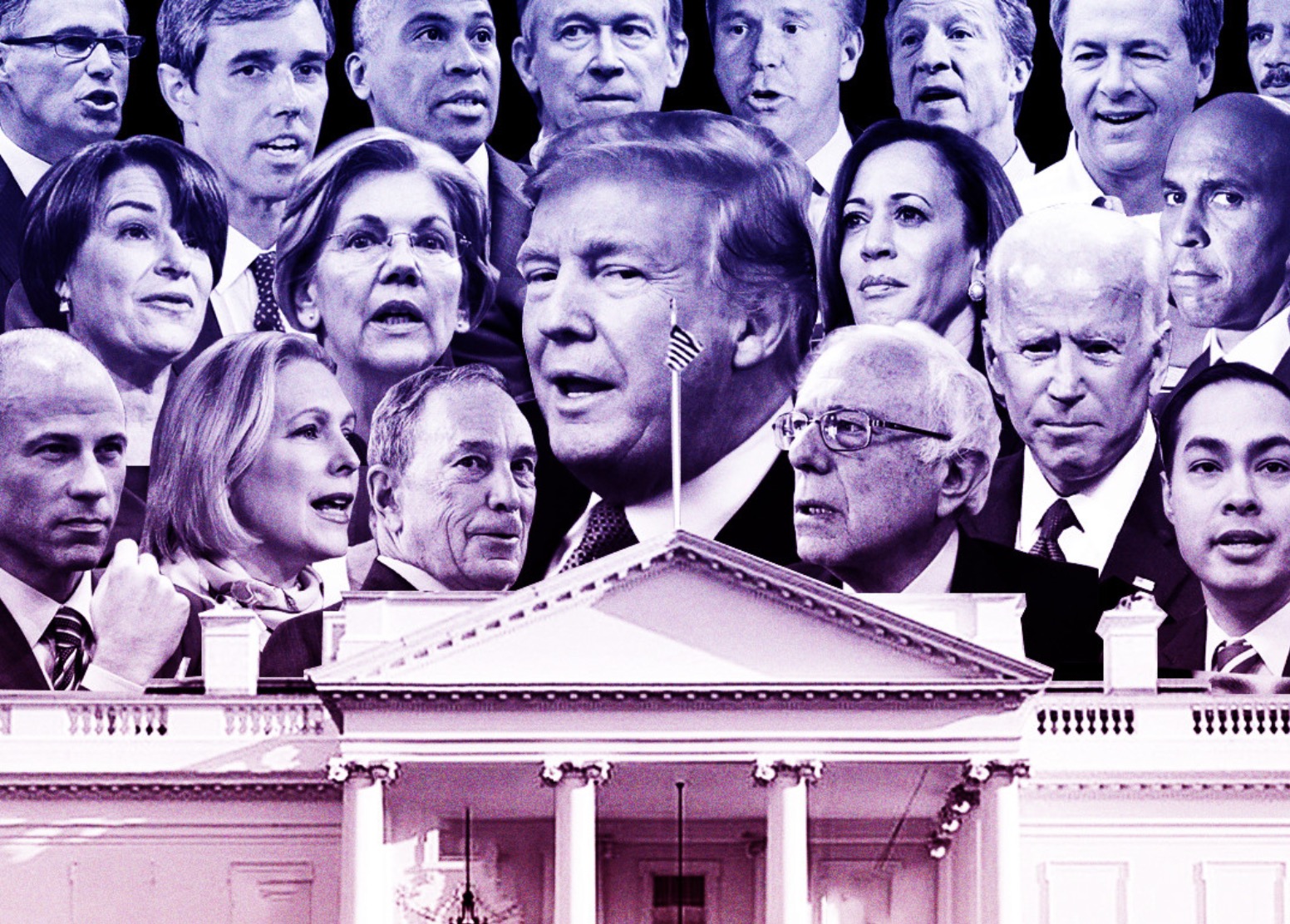As much focus as people like to put on the main two candidates of any election cycle, presidential primaries can be just as important as the general election. That is especially true when the stakes get higher, and it feels as though the stakes have never been higher than now.
The 2016 presidential primary was a similar, but perhaps not as dire, situation. While Barack Obama was finishing out his second term in office, the Democratic Party and the GOP were preparing to fight tooth and nail for the power of the presidency. For the Democrats, it was all but certain that Hillary Clinton would get the Democratic primary nomination, despite overwhelming support for Bernie Sanders, but 17 Republicans were vying to be her competitor. Such a crowded race made it easy for Donald Trump to quickly distinguish himself and maintain his frontrunner status, but the primary itself was brutal and personal.
As the 2020 primary season approaches, it feels like the Democrats are hurdling in that same direction. America is two years into a Trump presidency that has proved to be so much worse than anyone could have possibly imagined, and because he currently plans on running for re-election, all eyes will be on the race to determine who will be his challenger.
Theoretically, the election as a whole shouldn’t be too difficult for Democrats. They really just have to ride the wave of Trump’s unfavorability and avoid making the same mistakes that they made last time. But based on current speculation, it already looks like there is about to be an onslaught of candidates in the Democratic primary who want to be the hero who puts a stop to the Trump train. But the vast differences in reputations and policy ideas of potential candidates are already signaling a fight that could easily get ugly.
Escaping the Shadow of Joe Biden
Right now, the most pressing question for the Democrats in 2020 is whether or not former Vice President Joe Biden will make another bid for the White House. He’s had his eyes on the presidency for years, losing the 2008 Democratic primary to Obama and deciding not to run in 2016 while coping with the death of his son.
But he already has the whopping support of the Democratic establishment, and early polling suggests that he has a strong edge over his potential competitors. After all, he’s a vital part of the Obama legacy, which is defined by progress, unity and an executive bromance that sparked countless memes.
By most definitions, Biden is the safe choice for the Democratic primary. But the Democratic party has drastically changed over the past several years, and it’s quite possible that what seems like the safe choice isn’t always the popular or the right one. Clinton was a safe bet against Trump, and she lost. She had the same level of experience as Biden, who has asserted that he would be the most qualified choice for president, and she lost.
His competitors will no doubt jump on that fact and attempt to paint him as being a man of the party establishment instead of the people, and despite the love that the public has for him, Biden will have to do everything in his power to prove that he is the right choice.
The Battle Between Centrism and Democratic Socialism Rages On
As much as Democrats love to point out how divided the GOP is between traditional conservatism and so-called “Trumpism,” they’re not exactly the glowing picture of a unified party either. Especially as millennials and Generation Z become more politically active, the voting bloc has shifted more to the left, as evidenced by the popularity of candidates like Sanders and Alexandria Ocasio-Cortez.
One of the main criticisms against Clinton from Sanders supporters in 2016 was that she wasn’t progressive enough in her policies, and that she was too willing to compromise on important issues. As Sanders considers making another bid in 2020, that could prove difficult to overcome for his challengers, and as much as the Republican Party seems to be radicalizing, some question whether or not the Democrats should allow the same to happen to them.
At the same time, going with a Democratic-Socialist could be a risky move for Democrats in an election that has so much at stake. There is an argument to be made that choosing a moderate is a better strategy for a party to take for the sake of getting more votes and accomplishing more in Congress, especially as partisanship continues to deepen. This Democratic primary will likely determine the direction of the party for years to come, and as much as the establishment loves to label itself as progressive, it will only allow so much. If voters feel differently, that could cause some serious strife reminiscent of 2016.
A New Democratic Party
If nothing else, the 2018 midterms proved that a younger generation of voters knows what they want to see in the politicians they elect into office. The freshman class of the 116th U.S. Congress is made up of people of all backgrounds and cultures, and many of them are millennials themselves.
In some ways, they’re better able to relate to the issues that Americans are facing today, and they can better articulate what they want to see in the country’s future because they have a clear stake in it as well. That’s the kind of status that any potential candidate needs to have in order to be successful in the Democratic primary.
Upcoming candidates like Julian Castro and Beto O’Rourke might not have the superstar status of favorites like Elizabeth Warren and Biden, but they’re fresh faces to a party that desperately needs to recalibrate its identity with younger, more diverse candidates.
Electing Obama was a major step forward in that process, but the divide between establishment Democrats and primary voters in 2016 reflected just how much the party needed to reconcile its traditional values with those of the next generation. Candidates like Biden, Warren and Sanders will make the case that their experience and tenure in politics is exactly what makes them the most suited to replace Trump, while relative newcomers like O’Rourke will rely more on their vision for the future than their reputation in the past.
If nothing else, 2016 proved to be a reckoning for a Democratic party that was overconfident and didn’t quite understand the people whose votes it desperately needed. All of its missteps could be rectified in 2020 with the right candidate, and everyone who runs will think that they’ve got what it takes. If this were any other election, maybe it wouldn’t feel as dramatic. But everyone wants the glory that will come with taking down Trump, and based on how early some of these candidates are starting their bids, they’re setting up to fight until the bitter end.

















